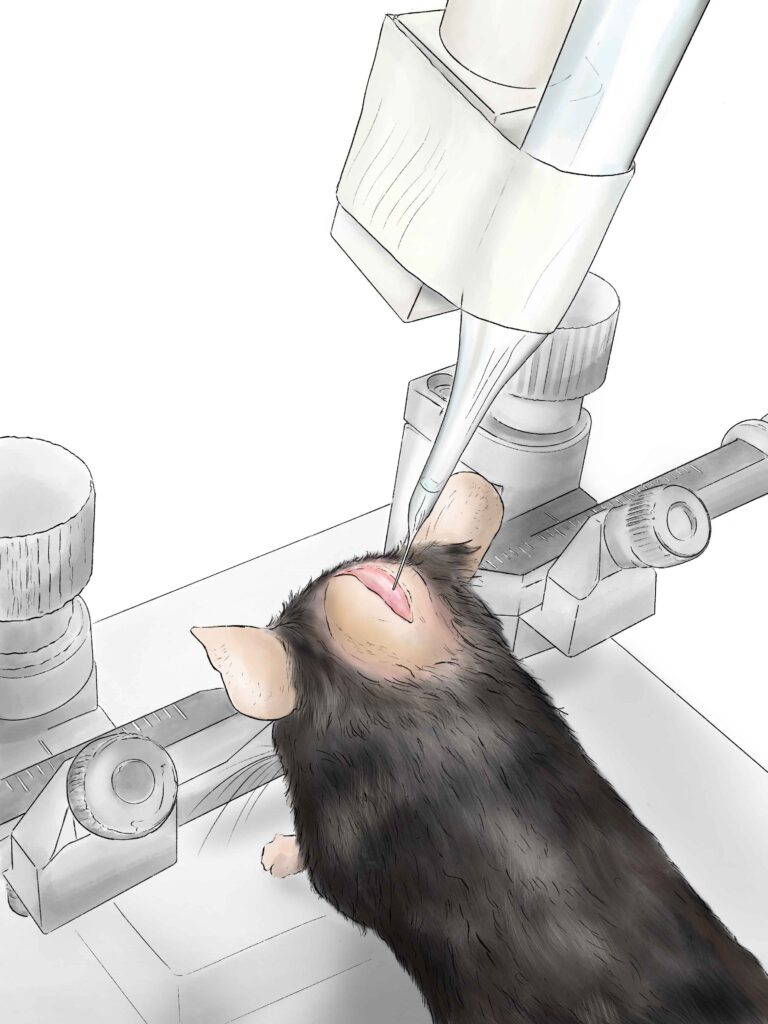Scantox now offers repeated in vivo cerebrospinal fluid (CSF) sampling. Collection of CSF samples from the same animal at different time points allows for longitudinal sample analysis of the same animal, significantly reducing the number of animals needed per group and study.
Depending on the project design, in vivo CSF collection represents a procedure that can be performed once or repeatedly throughout a study. This allows to track changes in the cerebrospinal fluid during the study such as pre-treatment, intermediate, and final, especially in gene therapy studies, leading to more accurate and comprehensive results.
Biomarkers can be measured in the CSF to evaluate development and progression chronic neurodegenerative diseases such as Alzheimer disease, Parkinson’s disease, Huntington disease, amyotrophic lateral disease, multiple sclerosis, and other neurological conditions such as neuroinflammation, schizophrenia or lysosomal storage diseases with neuronal component. Additionally, the efficacy of drug candidates can be evaluated by using single or repeated CSF sampling and analysis. The CSF is therefore a useful body fluid to evaluate biomarkers and results of such analyses have a high translational value compared to results of clinical studies.
Our trained staff is well-versed in this collection technique and can perform this procedure at various time points during the study, offering high quality samples. To guarantee an undisturbed procedure, animals must be deeply anesthetized using inhalation anaesthesia. The animal is then placed in the stereotaxic apparatus. The procedure is swift, exposure to the anaesthesia minimal, and animals wake up immediately after completion. Pain management is a priority during the CSF collection process and our staff ensures that the animals are experiencing minimal discomfort during the procedure and throughout the recovery process.

Figure 1. In vivo CSF sampling performed on a mouse.
Contact us today to discuss how this method can improve the readout of your in vivo study!









